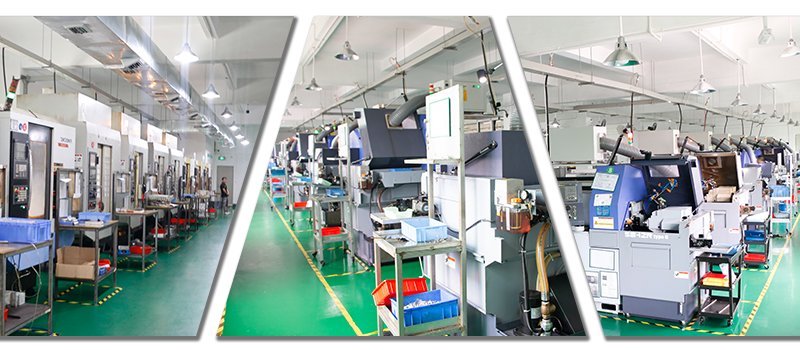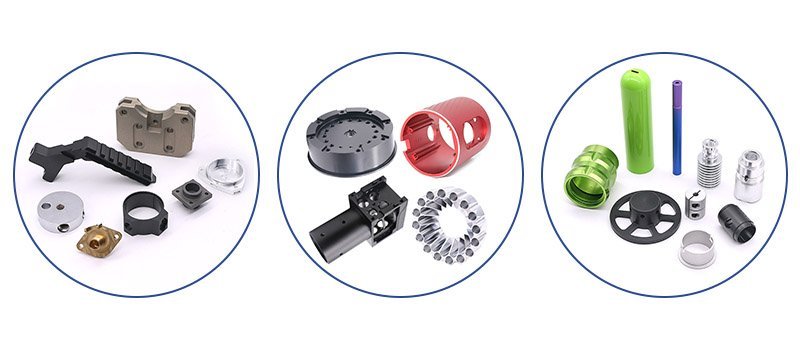When you’re dealing with custom parts and prototypes, the challenge of finding a CNC machining service that can meet your exact needs is real. Whether you’re designing a single prototype or ordering a batch of complex custom parts, you need a solution that’s both flexible and precise. As someone who’s been in the CNC machining business for years, I know how essential it is to choose a service that not only has the right equipment but also the expertise to deliver high-quality, customized solutions.
At YL-Machining, we specialize in providing high-precision, custom CNC machining services tailored to meet your unique specifications. But what exactly does “customization” mean in CNC machining, and how can you ensure that the parts you need are produced according to your exact requirements? In this article, I’ll break down what customization entails in CNC machining, the challenges that can arise, how we address them, and why our approach stands out.
What Is Custom CNC Machining?
CNC machining is a process used to manufacture parts and components from a range of materials, such as metals, plastics, and composites. Unlike traditional manual machining, CNC machining is highly automated and uses pre-programmed computer software to control the movement of machine tools. This allows for incredibly precise, repeatable operations and the production of complex parts with high dimensional accuracy.
When we talk about custom CNC machining, we’re referring to the ability to produce parts that meet specific, often complex, customer requirements that go beyond standard, off-the-shelf components. Custom CNC machining involves adjusting the machining process to meet the specific geometry, material, tolerance, and finish requirements for a given part.
Understanding Customization Needs
Customization in CNC machining typically involves:
- Custom Shapes & Designs: Designing parts with intricate, non-standard geometries or specific features that are unique to the application.
- Material Selection: Using specialized materials or alloys tailored to the specific needs of the part, such as high-strength metals, corrosion-resistant alloys, or thermoplastics.
- Surface Finish Requirements: Achieving specific textures or finishes, like mirror finishes, matte, or custom coatings, to meet the aesthetic or functional requirements of the part.
- Precision & Tolerances: Ensuring that the final part meets tight tolerances, sometimes down to the micrometer level.
- Low & High-Volume Production: Providing solutions that work for both one-off prototypes and high-volume production runs.
Custom CNC machining can be applied across various industries such as aerospace, automotive, medical device manufacturing, electronics, and more.
Challenges in Meeting Customization Needs in CNC Machining
While custom CNC machining offers a world of possibilities, it also presents its own set of challenges. Some of the most common issues faced during the customization process include:
1. Material Limitations
Not all materials are compatible with every machining process, and certain materials can be more difficult to machine than others. For example, machining harder materials like titanium or high-strength alloys requires specialized tools and techniques. Additionally, finding the right material that meets both your functional requirements and your machinability preferences can be time-consuming.
2. Design Complexities
Complex designs with intricate geometries, fine tolerances, or unique features can put additional strain on the machining process. Designs that are too complex may require advanced tools or multiple machining steps, increasing both production time and costs.
3. Tolerance and Precision Issues
Custom CNC parts often come with tighter tolerances than standard parts, making it difficult to maintain consistency and precision across multiple units. A small mistake in the machining process can lead to defects that affect the performance and functionality of the part, potentially requiring expensive rework or leading to scrap.
4. Lead Time and Scheduling
Customization projects often involve tight deadlines, especially for prototypes or low-volume production runs. The complexity of the part and the availability of materials can sometimes delay production and increase lead times, which can be frustrating for customers who need the parts quickly.
5. Cost Control
Custom parts often cost more to produce due to the higher degree of precision, special tooling, and longer production times involved. While customization adds value, it’s essential to manage production costs without compromising on quality.
How Do We Overcome These Challenges at YL-Machining?
At YL-Machining, we take pride in overcoming these challenges through a combination of advanced technology, experienced machinists, and a customer-focused approach. Here’s how we address some of the key issues:
1. Advanced Material Selection & Expertise
We work closely with suppliers to ensure access to a wide range of materials, including metals, plastics, and composites that are ideal for CNC machining. Our engineers are experts in material properties and can guide you in selecting the right material for your project. We also utilize state-of-the-art machines capable of working with a variety of challenging materials, such as titanium, Inconel, and high-carbon steels.
2. Precision Design and Prototyping
When it comes to complex designs, we leverage the power of advanced CAD software and CAM systems to ensure that your design is machinable and that the machining process is optimized for maximum efficiency. We also use 3D printing and rapid prototyping to provide physical models of parts before starting the final CNC machining process, ensuring we’re on the right track.
3. Maintaining Tight Tolerances
We employ high-precision machines and incorporate in-process measurement tools to guarantee that each part meets the required tolerances. Our team continuously monitors production quality, making adjustments in real-time to ensure that each piece meets your specifications. This reduces the likelihood of defects and ensures the final part performs optimally.
4. Efficient Lead Time Management
We understand that time is critical for our customers, especially when working on prototypes or low-volume production runs. Our lean manufacturing processes, combined with advanced scheduling and real-time tracking, allow us to minimize lead times without compromising quality. We keep our customers updated throughout the process, so you always know when to expect your parts.
5. Cost-Effective Customization
While custom parts may inherently be more expensive than standard components, we work hard to optimize the machining process and reduce unnecessary costs. Our experienced machinists and engineers suggest design modifications that can help lower production costs while maintaining the functionality and quality of the part. We also offer competitive pricing without compromising on the precision you require.
What Are the Benefits of Solving Custom CNC Machining Challenges?
By overcoming the challenges associated with custom CNC machining, you’ll unlock several significant benefits for your business:
- Higher Quality Parts: Achieving precise dimensions, the right material selection, and the required surface finish ensures that the final product is of the highest quality, which in turn improves product performance and customer satisfaction.
- Reduced Rework and Waste: Through efficient processes, tight tolerances, and in-process measurements, you’ll reduce the need for rework, scrap, and waste, ultimately lowering production costs.
- Faster Time-to-Market: Solving lead-time issues means you can get your products to market faster, which is crucial when working with prototypes or when you’re facing tight deadlines.
- Increased Customer Satisfaction: Custom parts that meet the exact specifications and deliver the desired functionality build trust with your customers, encouraging repeat business and long-term relationships.
Related Search Questions You Might Have
1. What Is the Difference Between Standard and Custom CNC Machining?
Standard CNC machining refers to the production of parts using off-the-shelf designs and materials, whereas custom CNC machining involves tailoring the machining process to meet specific requirements, whether that’s a unique material, custom geometry, or exact tolerances. Custom machining allows you to produce parts that fit your unique needs.
2. How Do I Ensure My Custom CNC Parts Are Cost-Effective?
To ensure that custom CNC parts are cost-effective, work closely with your manufacturer to streamline the design process, select the right materials, and optimize cutting parameters. Also, consider the production volume—producing higher quantities can reduce the cost per part.
3. What Is the Role of CNC Machining in Rapid Prototyping?
CNC machining plays a crucial role in rapid prototyping, allowing for quick and accurate production of prototype parts. With CNC, you can rapidly test and iterate designs, speeding up the product development cycle and reducing the time to market.
Why Choose YL-Machining?
At YL-Machining, we are committed to meeting your unique CNC machining needs with precision, reliability, and efficiency. We combine cutting-edge technology, extensive industry experience, and a customer-focused approach to ensure that we deliver the exact parts you need, on time and on budget.
With our state-of-the-art equipment, skilled engineers, and commitment to excellence, we can tackle even the most challenging custom machining projects. Whether you need a single prototype or thousands of custom parts, we’ve got you covered.
Visit our website YL-Machining to learn more about our CNC machining services and how we can support your next project.
I hope this detailed guide helps you understand how CNC machining can meet your customization needs, and how YL-Machining is the right choice for your next project. If you have more questions or need assistance, feel free to get in touch with us!






